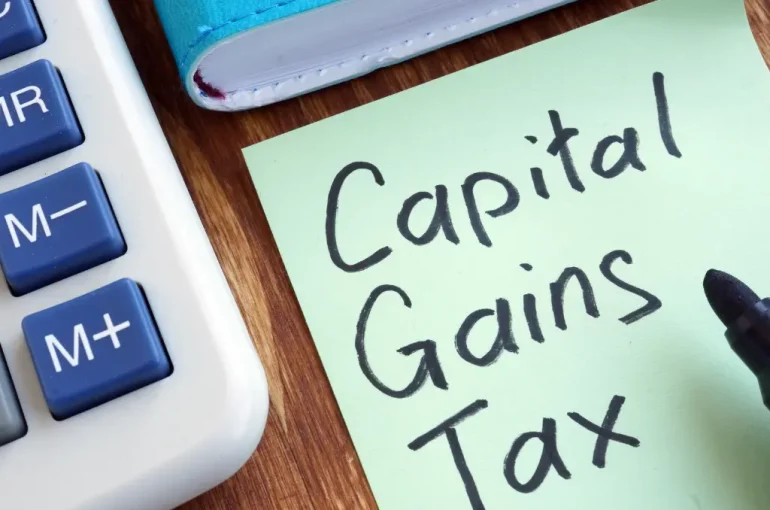Top Tax Strategies for Reducing Capital Gains Tax
Top Tax Strategies for Reducing Capital Gains Tax

Whenever you sell an asset at a profit, whether it’s property, shares, or even crypto, the gain is added to your taxable income. This is called CGT or capital gains tax and it can significantly cut into your investment returns.
But with good planning and the expert guidance of a financial planner, there are several legal and legitimate ways of reducing capital gains tax and maximising your wealth.
What is Capital Gains Tax and How Does It Work?
CGT is essentially a tax on success. When you sell an asset, you either make a profit or a loss. If you make a profit, the gain becomes part of your taxable income, which increases how much income tax you pay. If the gain is particularly big, it could even bump you into a higher tax bracket.
Note that CGT doesn’t apply to assets acquired before 20 September 1985. There are also several CGT exceptions, depending on the type of asset and its value. Some exceptions include collectables bought for less than $500, your primary residence, and your personal car.
Best Strategies to Reduce Capital Gains Tax
1. Time Your Sales Strategically
There are three ways you can time the sale of your assets to reduce CGT.
- Hold an asset for at least 12 months, either through your name or via a trust. This will make it eligible for a 50% CGT discount when you sell it. For example, if you buy a house for $500,000, own it for a year, and then sell it for $600,000, CGT will be applied only to $50,000 of the gain instead of the full $100,000.
- Wait for years when you’ll have a lower or no income to sell off assets, such as during a sabbatical or when you retire. This keeps your total taxable income low. If you run a business, you can reduce your pay during the same year when you sell an asset. You can keep the extra money you’d have paid yourself in the business.
- If you’re selling multiple assets, spread the sales over several years instead of selling all of them at once. This will keep your total taxable income from getting too high during any particular year.
2. Offset Gains With Losses
The ATO allows investors to offset capital gains with capital losses. If you have capital losses, either from the current year or previous years, you can deduct them from your capital gains.
Say you’ve made a gain of $50,000 after selling some shares. If you’d also sold some other shares or property, but made a $10,000 loss, you can reduce your taxable gain to $40,000.
Note, however, that you can’t offset capital gains with just any capital losses. Capital losses from collectables, like art and jewellery, can only offset gains from other collectables. Capital losses from personal use items, like boats and household items, are ignored and cannot offset capital gains from any assets.
3. Use the 6-year Rule
Your primary residence is generally exempt from CGT. This applies even after you move out and rent it out. You can still designate it as your primary residence for up to 6 years, after which it becomes a CGT asset.
If you sell it within those 6 years, you don’t have to pay CGT on it. You can earn rental income for up to 6 years from your main residence and then time your sale just before the 6 years are over to avoid CGT.
Keep in mind that you can only have one main residence at a time. The only exception is if you’re moving to a new house and haven’t yet sold your old one. You can have two main residences for up to 6 months.
4. Buy Assets Through an SMSF or Family Trust
Owning assets through an investment structure, rather than in your name, can help you save on CGT. Two good options are a self-managed super fund (SMSF) and a family trust.
Buying assets via an SMSF lets you enjoy the lower tax environment inside a super. Income earned by a super, including capital gains, is taxed at 15%, regardless of the amount. In contrast, if you were to own assets in your name, capital gains would be charged at your marginal rate.
Supers also get a 33.3% CGT discount if the asset has been owned for at least 12 months. When you factor in this discount, you could end up paying about 10% on your capital gains.
Using a family trust lets you distribute capital gains among family members, thus reducing your taxable income. Let’s say you made a profit of $100,000 on a sale. Instead of adding the entire amount onto your income, you can distribute it among lower-earning family members so that everyone pays tax on a lower amount.
Other Capital Gains Tax Strategies
- Increase your concessional contributions to reduce your taxable income. Note that the current cap is $30,000, and it includes employer contributions. The main downside of this method is that you tie up your money in your Super until you retire.
- If you’ve hit your cap, you can carry forward unused contributions from previous years, allowing you to contribute more than the current cap (catch-up contributions). Again, this ties up your money in the Super for years.
- Borrow to invest. Some lenders let you pay up to 12 months of interest upfront, which lets you claim deductions on the interest in the same year that you’ve sold an asset. This will reduce your taxable income. However, leveraging comes with risk, so we recommend discussing it first with a financial planner.
- Premiums you pay to protect your salary or income are tax-deductible. So you can take out an income protection policy to reduce how much tax you pay on income.
- There are several work-related deductions you can claim to reduce your CGT and overall income tax. These include meals, membership fees, PPE, and more. But you should ask yourself whether spending money on something just to claim a deduction is worth it. After all, you’re still spending money. Your primary goal should be spending money on things you actually need in your business. If you can claim deductions on them, consider it a bonus.
- Make tax-deductible donations.
How Lifestyle Led Wealth Can Help You Pay Less CGT
At Lifestyle Led Wealth, we provide tailored tax advice to help our clients pay less tax and maximise wealth. We can help you plan your sales, adjust your investment structure, and use every available deductible to reduce your CGT.
Contact us on 1300 068 453 to talk to Justin, our tax advisor, on how you can pay less or avoid capital gains tax.
Disclaimer: The information contained in this document is of a general nature only and has been prepared without taking into account your objectives, financial situation or needs.
